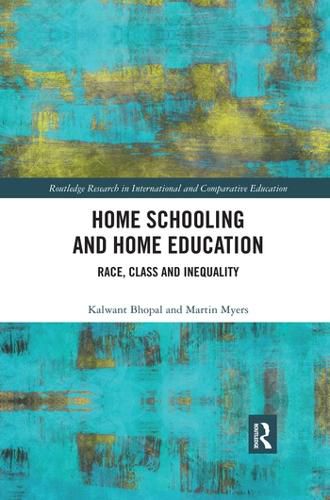Readings Newsletter
Become a Readings Member to make your shopping experience even easier.
Sign in or sign up for free!
You’re not far away from qualifying for FREE standard shipping within Australia
You’ve qualified for FREE standard shipping within Australia
The cart is loading…






Home Schooling and Home Education provides an original account of home education and examines ways in which the discourses of home education are understood and contextualised in different countries, such as the UK and USA. By exploring home education in the global and local context of traditional schooling, the book bridges a much-needed gap in educational and social scientific research.
The authors explore home education from two related perspectives: firstly how and why home education is accessed by different social groups; and secondly, how these groups are perceived as home educators. The book draws upon empirical case study research with those who use home education to address issues of inequality, difference and inclusion, before offering suggestions for viable policy shifts in this area, as well as broadening understandings of risk and marginality. It engages and initiates debates about alternatives to the standard schooling model within a critical sociological context.
The scholarly emphasis and original nature of Home Schooling and Home Education makes this essential reading for academics and postgraduate researchers in the fields of education and sociology, as well as for educational policymakers.
$9.00 standard shipping within Australia
FREE standard shipping within Australia for orders over $100.00
Express & International shipping calculated at checkout
Home Schooling and Home Education provides an original account of home education and examines ways in which the discourses of home education are understood and contextualised in different countries, such as the UK and USA. By exploring home education in the global and local context of traditional schooling, the book bridges a much-needed gap in educational and social scientific research.
The authors explore home education from two related perspectives: firstly how and why home education is accessed by different social groups; and secondly, how these groups are perceived as home educators. The book draws upon empirical case study research with those who use home education to address issues of inequality, difference and inclusion, before offering suggestions for viable policy shifts in this area, as well as broadening understandings of risk and marginality. It engages and initiates debates about alternatives to the standard schooling model within a critical sociological context.
The scholarly emphasis and original nature of Home Schooling and Home Education makes this essential reading for academics and postgraduate researchers in the fields of education and sociology, as well as for educational policymakers.